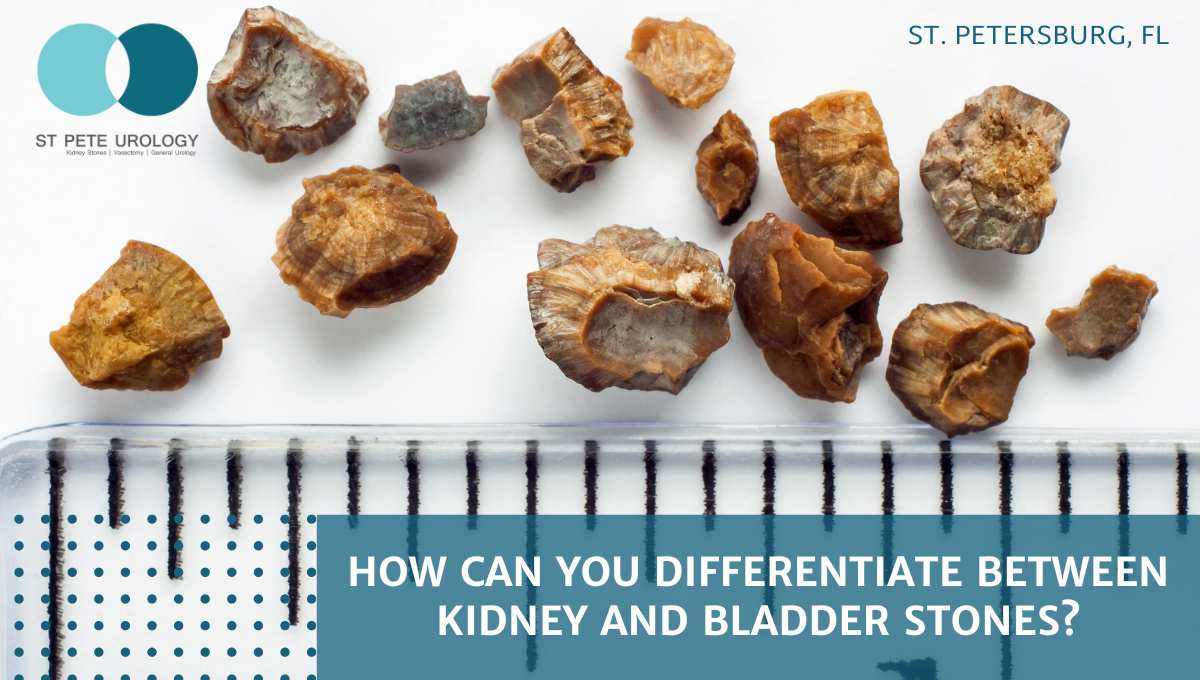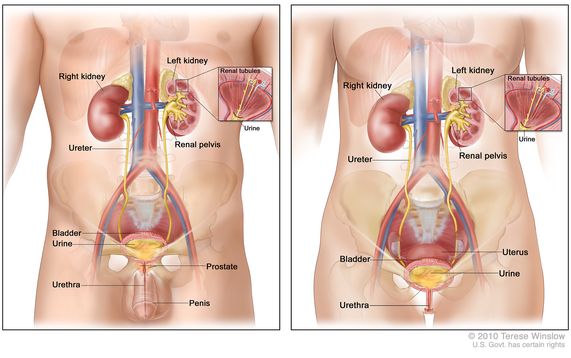Checking Out the Symptoms and Causes of Kidney Stones in Comparison to Urinary System Tract Infections: A Thorough Guide
The expedition of kidney stones and urinary system infections (UTIs) reveals a complicated interaction of symptoms and underlying causes that call for mindful assessment. While both problems can lead to hematuria, they provide distinct scientific attributes and occur from various etiological variables. Recognizing the nuances of each problem is important for reliable medical diagnosis and management. What are the crucial distinctions in their signs and symptoms, and how might these educate treatment techniques? The response to these inquiries might provide important insights right into the avoidance and treatment of these usual urological concerns.
Summary of Kidney Stones
Kidney stones, also understood as renal calculi, type when particular substances in the urine crystallize and aggregate, leading to the development of hard deposits within the kidneys. These rocks can differ in dimension, varying from a grain of sand to a golf round, and can be made up of numerous products, one of the most usual being calcium oxalate, uric acid, struvite, and cystine. The development of kidney rocks is influenced by several elements, including dietary habits, liquid consumption, and genetic predisposition.
Symptoms of kidney stones might consist of extreme discomfort in the back or side, blood in the urine, queasiness, and frequent urination, particularly as the stone relocates via the urinary system system. Medical diagnosis typically involves imaging studies such as ultrasound or CT scans, together with urinalysis to determine the rock's make-up.
Treatment options differ based on the dimension and kind of stone, along with the intensity of signs (Kidney Stones vs UTI). Small rocks might pass naturally with raised fluid intake, while bigger stones might need clinical treatments such as lithotripsy or surgical elimination. Comprehending the pathophysiology and danger factors connected with kidney rocks is essential for efficient prevention and administration
Overview of Urinary System Tract Infections
Urinary system system infections (UTIs) prevail bacterial infections that impact any component of the urinary system, including the kidneys, ureters, bladder, and urethra. They mainly occur when germs, often from the stomach tract, go into the urinary system, causing inflammation and infection. UTIs are categorized right into two primary kinds: uncomplicated and challenging. Straightforward UTIs usually occur in healthy people with normal urinary system systems, while complicated UTIs might emerge in individuals with hidden problems, such as structural irregularities or jeopardized immune systems.
The frequency of UTIs is significantly higher in females than men, largely due to physiological distinctions, such as a shorter urethra. Threat elements consist of sex, specific contraceptive techniques, urinary retention, and dehydration. The medical diagnosis of UTIs is normally verified through urine tests, which might expose the visibility of germs, white blood cells, or red cell.

Signs of Kidney Stones
The pain linked with kidney rocks can materialize in various means, commonly leading individuals to look for medical attention. Among the most typical signs is severe discomfort, normally localized in the lower back or side, which might emit to the abdomen or groin. This discomfort, commonly described as sharp or cramping, can happen instantly and may change in intensity.
Furthermore, people may experience hematuria, or blood in the pee, which can vary from microscopic quantities to noticeable discoloration. This symptom might be gone along with by modifications in urinary routines, such as increased frequency or necessity, as well as pain during urination. Nausea or vomiting and throwing up are additionally common, often resulting from the body's reaction to intense pain.
In some situations, individuals might experience fever and cools, especially if a second infection develops because of the blockage triggered by the rocks. Overall, the combination of serious discomfort, hematuria, transformed urinary patterns, and intestinal signs can give substantial understanding into the visibility of kidney stones, warranting timely clinical examination and intervention. Comprehending these signs and symptoms is crucial for prompt medical diagnosis and effective monitoring of the condition.
Signs of Urinary Tract Infections
Infections within the urinary tract usually offer a variety of distinct signs and symptoms that can dramatically impact every day life. The most usual signs consist of a persistent desire to urinate, usually gone along with by a burning experience throughout urination, referred to as dysuria. Individuals may likewise experience boosted regularity of peeing, creating little amounts of pee each time.
Other noteworthy symptoms consist of smelly or cloudy urine, which may show the visibility of bacteria or pus. Sometimes, pee may appear red or pink as a result of the visibility of blood, a condition referred to as hematuria. Furthermore, individuals may experience pelvic discomfort or stress, which can additionally worsen the feeling of urgency.
Systemic signs and symptoms might also manifest, such as high temperature, cools, and exhaustion, specifically if the infection has actually ascended to the kidneys. It is necessary to recognize these symptoms early, as without treatment urinary system tract infections can cause much more severe problems. Kidney Stones vs UTI. Motivate clinical attention is recommended when these signs and symptoms are observed, permitting for suitable diagnostic analysis and therapy to minimize discomfort and prevent more health and wellness issues
Sources Of Each Problem
Often, kidney blog here stones and urinary system infections emerge from distinct yet often overlapping reasons that can influence individuals differently. Dehydration, insufficient liquid intake, and high-sodium diet plans can exacerbate these conditions, advertising crystallization within the urinary system.

Recognizing these unique causes is vital for prevention and therapy. Kidney Stones vs UTI. While way of living alterations might mitigate the risk of kidney stones, suitable hygiene and timely therapy of urinary system system infections are vital for lowering their recurrence and associated complications
Conclusion
In summary, kidney rocks and urinary system tract infections existing unique symptoms and underlying reasons. Kidney stones are identified by extreme discomfort and metabolic aspects, while urinary tract infections primarily entail bacterial infections leading to urinary urgency and discomfort.
The expedition of kidney rocks and urinary system tract infections (UTIs) exposes a complicated interplay of signs and symptoms and underlying causes that warrant careful exam.Urinary tract infections (UTIs) are usual bacterial infections that affect any component of the urinary system, including the kidneys, why not look here ureters, bladder, and urethra.Frequently, kidney stones and urinary tract infections develop from unique yet in some cases overlapping causes that can affect individuals in a different way.In summary, kidney stones and urinary tract infections existing distinctive signs anchor and underlying causes. Kidney rocks are characterized by severe pain and metabolic elements, while urinary system infections largely involve bacterial infections leading to urinary seriousness and pain.